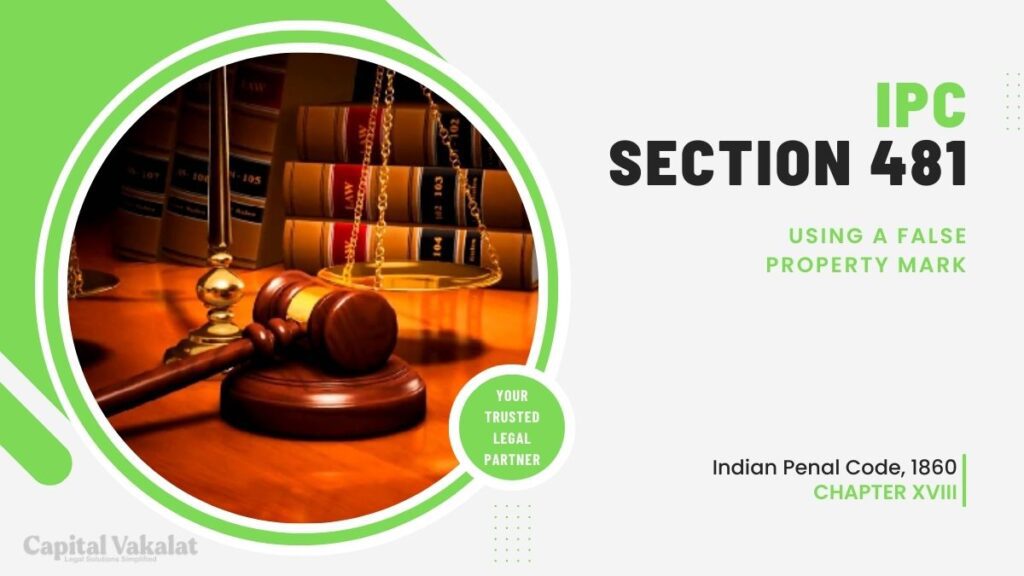In the intricate web of legalities, Section 481 IPC stands as a formidable guardian of property rights, specifically addressing the use of false property marks. This provision holds paramount importance in safeguarding possessions and maintaining order in the realm of commerce.

As we delve into the depths of Section 481 IPC, let’s explore its nuances, the significance of property marks, and real-world implications.
Understanding Section 481 IPC
Section 481 IPC, nestled within the Indian Penal Code, deals explicitly with the usage of false property marks. Property marks serve as visual signatures, distinguishing one’s belongings from another. This section, therefore, safeguards against the deceptive use of such marks, emphasizing the need for authenticity in the identification of property.
The Significance of Property Marks
Property marks play a pivotal role in establishing ownership. Beyond mere symbols, they serve as a language of possession, deterring potential wrongdoers by making the rightful owner easily identifiable. Whether it’s a discreet serial number on a gadget or a company logo on a product, property marks contribute significantly to the security of belongings.
Elements of Section 481 IPC
To comprehend Section 481 IPC, it is crucial to grasp its key components. Using a false property mark entails intentional deception, requiring both knowledge and intent. The section aims to penalize those who knowingly apply false property marks to mislead or defraud others.
Real-world Examples
Examining real-world scenarios brings legal provisions to life. Instances where Section 481 IPC was invoked shed light on the consequences of using false property marks. These examples illustrate the diverse applications of the law and the subsequent outcomes, providing a practical perspective.
Legal Implications
Violating Section 481 IPC carries specific penalties, and the judicial system plays a vital role in interpreting and applying these consequences. Understanding the legal ramifications of using false property marks aids in appreciating the severity with which the law addresses such offenses.
Preventive Measures
The best defense is a good offense. Preventing the misuse of property marks involves not only legal enforcement but also public education. Promoting responsible marking practices and creating awareness about the legal implications can act as a deterrent.
Challenges in Enforcement
While the law is clear, its effective implementation poses challenges. Law enforcement agencies grapple with issues ranging from identifying false marks to prosecuting offenders. Addressing these challenges is crucial to fortifying the efficacy of Section 481 IPC.
International Perspectives
A comparative analysis with similar laws globally provides insights into the strengths and weaknesses of Section 481 IPC. Learning from international best practices enables the enhancement of existing legislation and enforcement mechanisms.
Conclusion
In conclusion, Section 481 IPC emerges not just as a legal provision but as a guardian of fairness in the realm of property rights. Its significance extends beyond penalizing wrongdoers; it promotes a culture of responsibility and respect for ownership. As we navigate the complexities of modern society, the proper understanding and application of Section 481 IPC become essential for fostering a secure and just environment.
Frequently Asked Questions
What qualifies as a false property mark?
Any mark that is intentionally used to deceive others about the origin, ownership, or quality of goods can be considered a false property mark under Section 481 IPC.
Are there specific industries where the misuse of property marks is more common?
The misuse of property marks can be found across various industries. However, products with high market value or strong brand recognition may be more susceptible.
How can individuals protect themselves from false property mark issues?
Individuals can protect themselves by being vigilant consumers, checking the authenticity of products, and reporting suspicious activities to the relevant authorities.